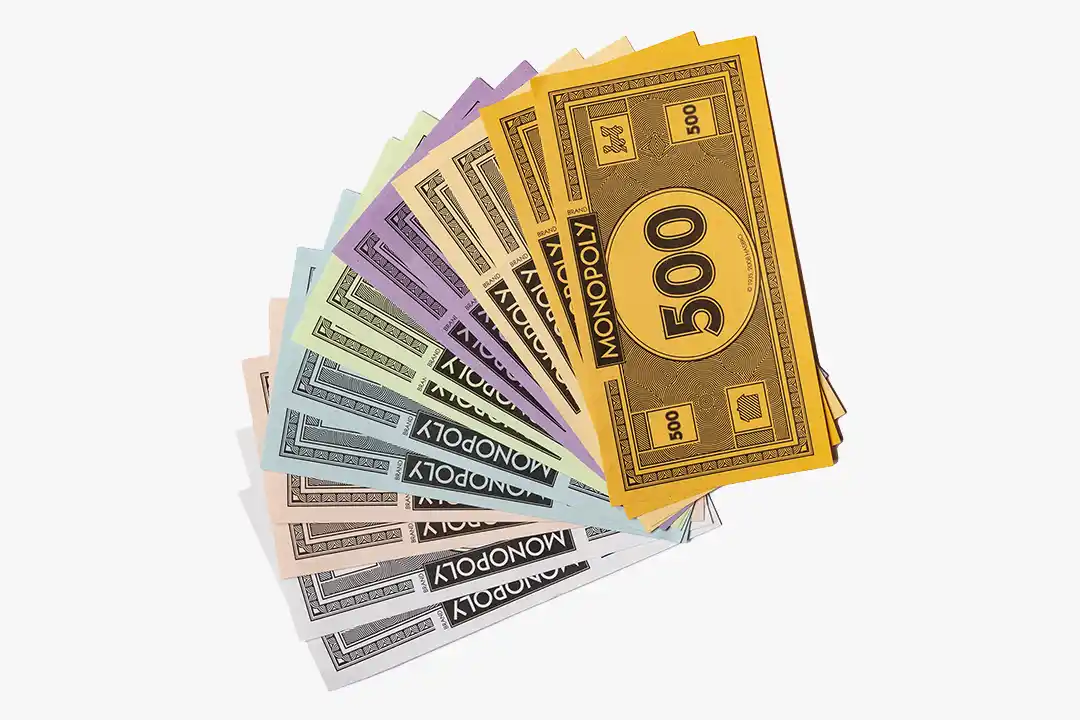Will climate change reset capitalism?
A miracle that created unprecedented prosperity or a system programmed to eradicate mankind? Never before has modern capitalism been as controversial as it has been in the early 2020s. But what would version 4.0 of a capitalist system look like?
By Andreas Cervenka

Will climate change reset capitalism?
A miracle that created unprecedented prosperity or a system programmed to eradicate mankind? Never before has modern capitalism been as controversial as it has been in the early 2020s. But what would version 4.0 of a capitalist system look like?
By Andreas Cervenka
If the dilemma faced by mankind were to be summarised in just a few figures, these would make a good start. First: 16.82. That’s how many degrees Celsius the global-mean surface air temperature rose to in August 2023; the highest ever registered and around 1.5 degrees higher than the pre-industrial period (1850-1900).
Next: 2,500 billion. That’s how many Swedish Krona the world’s five biggest oil companies made in profits in 2022, which was double that of the previous year. Investments in new extractions of oil and gas in 2023 are predicted to approach 6,000 billion SEK the highest figure since 2015, according to the International Energy Agency (IEA).
Ramping up production
In the pursuit of bigger profits, the oil and gas majors are ramping up production rather than investing in renewable energy sources that are known to be less profitable. By the standards of modern capitalism, the oil majors’ advances make an amazing success story.
The ExxonMobil share price has risen by 250% since the autumn of 2020, and in September 2023 it reached an all-time high. ExxonMobil CEO Darren Woods’ compensation rose from 175 million SEK in 2020 to over 400 million SEK in 2022. The shares he received as a bonus during his six years as CEO are now worth 1.8 billion SEK in total. The signal the system is sending to Darren Woods and others in similar positions is: keep up the good work! So expect production and sales of fossil fuels to continue to increase.
The problem of course is that ExxonMobil’s income statement and share price only tell one side of the story. At the same time as this hyper-effective profit-making machine enriches shareholders, it’s also indirectly generating waste in the form of huge costs, both human and economic.

In 2022, the world’s five biggest oil companies made 2,500 billion Swedish Krona in profits.

In 2022, the world’s five biggest oil companies made 2,500 billion Swedish Krona in profits.
The extreme weather events of 2023 make the looming climate catastrophe caused by rising CO2 emissions – which researchers have long been warning us about – seem less like a distant dystopia and more like an acute situation in the here and now. And ExxonMobil’s share of the bill for the costs is precisely zero. The profits flow to the company’s owners while the costs are incurred by current and future generations of people.
Ultimately, this inherent conflict can be seen as a question of priorities: what’s more important – profit or the survival of humanity? For more than 50 years now, the answer has been obvious: profit!
What’s more important – profit or the survival of humanity? For more than 50 years now, the answer has been obvious: profit!
In recent years, however, many have started to question the fairness of this choice for what seems to be good reasons. To understand where capitalism stands today and where it is heading, we need to rewind the tape.
There are two key years to keep in mind, the first of which is 1970. That was when an essay written by the American economist Milton Friedman was published in New York Times Magazine. The 18,000-characters-long essay exudes a sense of frustration. Friedman questioned the prevailing doctrine at the time of the need for businesses to exercise social responsibility.
A global revolution
He dismissed it as nonsense, making his view clear in the essay title: “The social responsibility of business is to increase its profits.” It would mark the start of a global revolution in the business world. The singular purpose of a business was to enrich its owners. Shareholder capitalism was born.
In its statement on the purpose of a corporation, the powerful Business Roundtable, an association of the leading companies in the United States, declared that corporations existed to serve their owners. The new dogma was personified by the legendary Jack Welch, CEO of General Electric between 1980 and 2001. His business principles included continuous restructuring processes, relocation of production to low-wage countries, and a crass staff policy of firing the bottom 10% of employees deemed to be low performers every year.
In recent years many have started to question the fairness of the fact that profit is the overall goal.


In recent years many have started to question the fairness of the fact that profit is the overall goal.
The core of this new doctrine is perhaps best captured in the character of Gordon Gekko, played by Michael Douglas in the film Wall Street from 1987. “Greed, for lack of a better word, is good. Greed works. Greed clarifies, cuts through, and captures the essence of the evolutionary spirit.” The film’s director Oliver Stone thought that the film would serve as a warning to the upcoming generation. Instead, it became arguably the most successful recruitment campaign ever for the finance industry. Everyone wanted to be like Gordon Gekko and Jack Welch, who in 1999 was hailed by Fortune as “CEO of the Century.”
To get to the next key year, we need to fast forward 49 years to 2019, the year when the Business Roundtable adopted a new version of its statement on the purpose of a corporation. This one contained a dramatic change: the wording about shareholder value was now replaced by a statement about how the company would benefit all stakeholders: customers, employees, suppliers, communities and shareholders. The new statement was signed by 181 business leaders, including Amazon’s Jeff Bezos and Apple’s Tim Cook.
A model under strain
Later the same year, the Financial Times, the favoured newspaper of the global financial industry, launched a large-scale campaign called “Capitalism: time for a reset.” The editor at the time, Lionel Barber, wrote: “The liberal capitalist model has delivered peace, prosperity and technological progress for the past 50 years, dramatically reducing poverty and raising living standards around the world. But in the decade since the global financial crisis, the model has come under strain, particularly the focus on maximising profit and shareholder value. These principles of good business are necessary but not sufficient. It’s time for a reset.”
This marked an extraordinary U-turn. What had happened? According to the reputable business newspaper The Economist, the answer was simple: Karl Marx was right.
According to the reputable business newspaper The Economist, the answer was simple: Karl Marx was right.
In an analysis performed back in 2018, the newspaper concluded that many of the renowned philosopher’s predictions about capitalism had actually come true. According to Marx, capitalism is in essence a system of rent-seeking whereby a few can accrue vast profits at others’ expense without contributing to society. He also believed that capitalism tended to create monopolies, that it would inevitably reach the far corners of the world and that workers would be the losers through being forced to move from one insecure job to the next.
Half of the companies in the 2003 ranking of the world’s top ten companies – Apple, Google, Amazon, Nvidia and Meta – hold monopolistic positions in their respective markets. The tech giants’ dominance has been compared to that of America’s so-called robber barons of the late 19th century. The gig economy has created an army of workers in a weak negotiating position.
The share of value created in companies that goes to the employees has steadily declined in the Western world since the 1970s. According to the International Monetary Fund, a major contributory factor to the high rate of inflation in the past two years is that companies took the opportunity to increase their profits.

Environmental, social and governance (ESG) investing and impact investing are concepts that have been established in recent years.

Environmental, social and governance (ESG) investing and impact investing are concepts that have been established in recent years.
Another side effect that has been linked to the shareholder paradigm is increased inequality. In 1970, the CEO of a large US company earned the equivalent of 24 workers; by 2021 this figure had risen to 399. Whereas wages for ordinary people rose in the post-war decades, over the past 15 years they have stagnated, but for those at the top they have risen. Financial Times columnist Martin Wolf has called the system that enriches the few rather than the many “rigged capitalism.”
A somewhat bizarre effect of the focus on share prices is that large companies increasingly opted to spend their money on buying back their own shares, a short-term manoeuvre, rather than invest in the future. And this happened at the same time as the post-financial crisis economy was suffering from a lack of investments. The 2008 financial crisis, caused by profit-driven and risk-averse banks, had political as well as economic consequences. Populism has become widespread in both the United States and Europe. As former Trump strategist Steve Bannon put it: “The legacy of the financial crisis is Donald J. Trump.”
Like powerful AI
In a global survey conducted in 2020 by PR consultancy Edelman, 57% of respondents agreed with the statement: “Capitalism as it exists today does more harm than good in the world.” Shareholder capitalism can be described as a powerful form of AI that programmes companies to seek increasingly larger profits without considering the consequences for society.
The time seems to have come for a reset, and attempts to achieve that are now well underway.
The Financial Times is not the only one to put its foot down; environmental, social and governance (ESG) investing and impact investing are concepts which any business leader with an instinct for self-preservation has been throwing around in recent years.
If the industrialisation of the late 1800s and early 1900s was Capitalism 1.0, of the postwar years Capitalism 2.0 and of the Jack Welch era Capitalism 3.0, perhaps the search for Capitalism 4.0 is best symbolised by Larry Fink, head of Blackrock, the world’s largest investment manager with assets of over 9,000 billion USD (around 100,000 billion SEK or almost 20 times Sweden’s GDP).
In 1970, the CEO of a large US company earned the equivalent of 24 workers; by 2021 this figure had risen to 399.


In 1970, the CEO of a large US company earned the equivalent of 24 workers; by 2021 this figure had risen to 399.
Already in 2016, he encouraged companies where Blackrock held shares to make their businesses environmentally and socially more sustainable. His interest in the issue did not originate in a wish to save the world, but rather to earn money. Many of the world’s pension fund managers began doing the maths years ago. With an investment horizon of, in many cases, 30 to 50 years, it would be an advantage if the planet was habitable when pensioners are due to get their money. In other words, offering investments with a climate-friendly profile was a major business opportunity. In his annual letter to CEOs in 2020, Larry Fink wrote that “climate change has become a defining factor in companies’ long-term prospects.”
Many have followed suit
Many other financial actors and big companies have followed suit. According to the consultancy McKinsey, 90% of the biggest US companies now publish ESG reports. There has been a surge in the number of funds claiming to invest ethically and climate-consciously. Companies have signed undertakings to reduce their CO2 emissions. The goal of becoming “climate neutral by the year X” is as much a matter of course in annual reports as are profit forecasts.
A total of 35,000 billion USD is estimated to be invested with some consideration given to either the climate or corporate social responsibility. After Russia’s invasion of Ukraine, further requirements were placed on companies to pull out of the country, whatever the cost. Companies that failed to respond fast enough faced customer protests and boycotts. The largest US companies mentioned ESG an average of nine times in their 2022 quarterly reports to investors, compared with once in 2017.
This all sounds promising, but there’s a problem: who decides what it takes for a company to be deemed sustainable?
This all sounds promising, but there’s a problem: who decides what it takes for a company to be deemed sustainable? And what incentives do companies actually have to set ambitious goals if no one forces them to do so? ESG barely managed to establish itself in the business world before it became a dirty word. Blackrock and Larry Find have become the target of ferocious attacks, not least from the conservative right, which believes that ESG stands for “woke capitalism,” an invention of leftist potheads to advance their agenda.
Among the most vocal critics is the US presidential candidate Ron de Santis, and among those heading the campaign is the world’s richest man, Elon Musk, who called ESG a “bluff” and on which he commented on X, formerly known as Twitter – which he now owns – as follows: “The woke mind virus is either defeated or nothing else matters.”

One of the most interesting ideas for a new model is “doughnut economics.” It’s about balancing social goals so that everyone’s basic needs are met within Earth’s ecological boundaries.

One of the most interesting ideas for a new model is “doughnut economics.” It’s about balancing social goals so that everyone’s basic needs are met within Earth’s ecological boundaries.
The conflict came to a head in the United States when 19 Republican states accused Blackrock of abusing its position by boycotting investments in oil companies. Lately, Blackrock has toned down its message at large companies’ shareholder meetings, and Larry Fink has said that he stopped using the term ESG because it was so polarising. This has prompted several states that invest substantial amounts of pension capital to warn Blackrock not to cave into the pressure.
Ideas and models abound of what Capitalism 4.0 might look like. One of the most interesting is “doughnut economics,” a term coined by British economist Kate Raworth in a book published in 2017. Briefly put, it’s about balancing social goals so that everyone’s basic needs are met within Earth’s ecological boundaries.
A central idea is to abandon continuous GDP growth as the key goal for the economy. Already in 2011, US economists Michael Porter and Mark Kramer launched the idea of “shared value” as the new purpose for companies, where they would focus on making a profit, though on the “right” kind of profit; that is, one that benefits wider society.
Endorsed by the pope
“Inclusive capitalism” is another concept, which is even endorsed by the Pope and has won the support of politicians and business leaders like Marc Benioff, billionaire and founder of the software company Salesforce. Here, too, profits would lead to a greener, fairer world. Another phenomenon is that of “benefit corporations,” a business form where corporate social responsibility is incorporated into company statutes. B Lab, an organisation that issues certifications according to a given set of criteria, claims to have over 7,400 certified companies in 92 countries, including the ice cream maker Ben&Jerry’s.
Does all this sound a bit fuzzy? That’s maybe because it is. The very task of putting numbers on the goals for this new capitalism has proven to be a major obstacle. It has also left the field open to charlatans. Three-quarters of all big US companies now link different versions of ESG goals to the determination of CEO compensation. But the fuzziness has meant that large investment managers began complaining that the goals could easily be manipulated to boost bonuses. And despite all the hype surrounding ESG, the pursuit of profit in its purest form still dominates the global business world. Perhaps it’s there, in the focus on profit, that the catalyst for the real paradigm shift lies, because climate change is now starting to cost money, and lots of it.
A study published in the journal Science Advances found that extreme heat cost the global economy the equivalent of 170,000 billion SEK between 1992 and 2013. During the first half of 2023, large insurance companies have lost more than 500 billion SEK. The cost of insuring against natural catastrophes and extreme weather has skyrocketed. Two of California’s biggest insurers announced this summer that it would stop insuring homes.
In recent years the world’s major central banks have begun warning that climate change could trigger the next financial crisis.
In recent years the world’s major central banks have begun warning that climate change could trigger the next financial crisis. The Financial Stability Board, a body that monitors risks in the global economy, estimates that losses from weather-related catastrophes rose from around 2,000 billion SEK annually in the 1980s to over 18,000 billion SEK in the 2010s. The countries most vulnerable to climate change have seen a surge in borrowing costs.
Things can happen quickly once the global financial world wakes up to this new reality, because suddenly it will no longer be about some fuzzy goal of saving the planet, but about saving profitability. Maybe Capitalism 4.0 will turn out to be very similar to its predecessor 3.0.
Maybe greed works after all.
[Sassy_Social_Share]

Andreas Cervenka
Columnist, Aftonbladet
Years in Schibsted: 12
My favourite song the last decade: Cairo, IL – The Brother Brothers